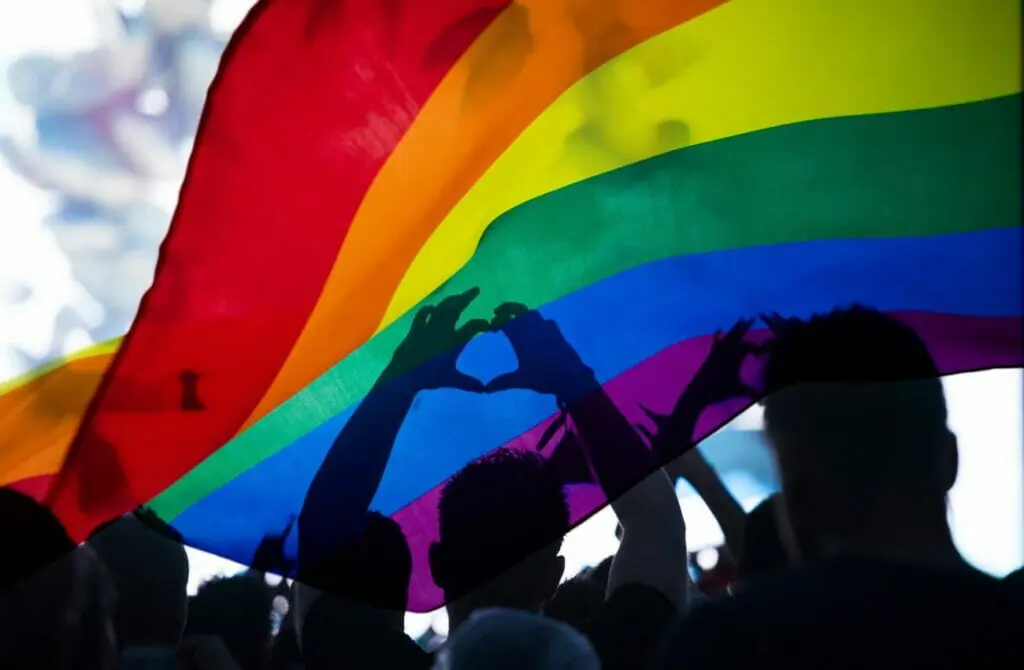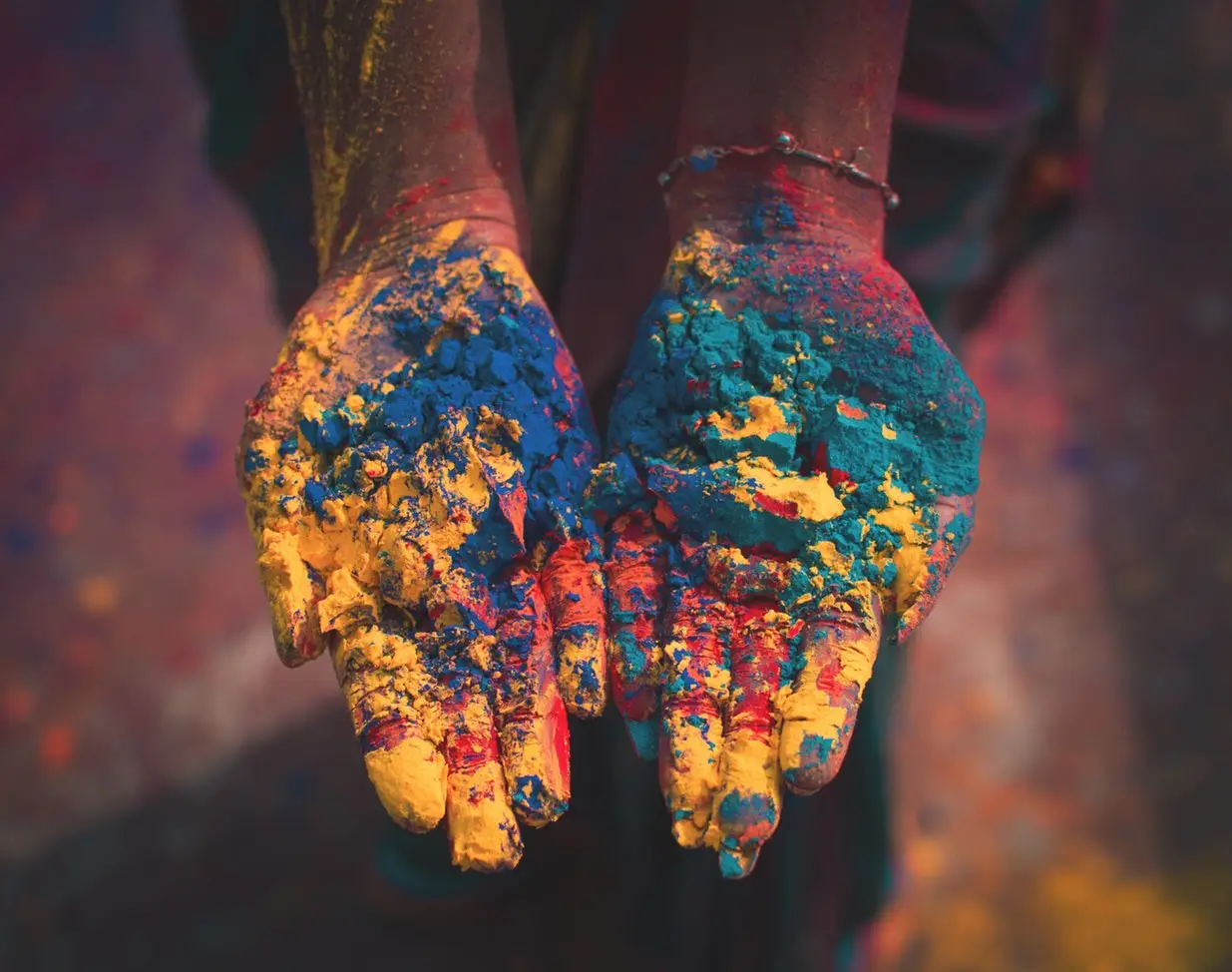LGBT rights in India have been a topic of discussion for several years, with significant strides being made in recent times. In September 2018, the Supreme Court of India decriminalized gay sex, previously barred under an 1860 law imposed by the British.
This monumental decision has brought increased attention to the rights of the LGBT community in the country. While homosexuality is legally permitted in India, same-sex unions are yet to be recognized, but this could change in the near future as further conversations and legal considerations unfold.
For travelers, both local and international, it is essential to remain informed about the current status of LGBT rights in the regions they visit. Although progress has been made in India, it is always crucial to stay vigilant, as situations can change rapidly, and there might be bad actors even in more progressive areas.
Seeking advice from relevant LGBT advocacy groups, like the Humsafar Trust and Naz Foundation, can provide valuable insight into the current situation and safety measures required while in the country.
To protect oneself, it is advisable to be cautious when discussing personal matters related to one’s sexuality or gender identity, especially in more conservative areas. While the legal landscape for LGBT rights in India is gradually improving, societal attitudes may still vary.
By erring on the side of caution and staying informed through reliable sources, visitors to India could navigate safely and responsibly, celebrating the progress made while acknowledging the work still to be done. This will ensure travelers prepare for a trip and understand the situation as it is on the ground.
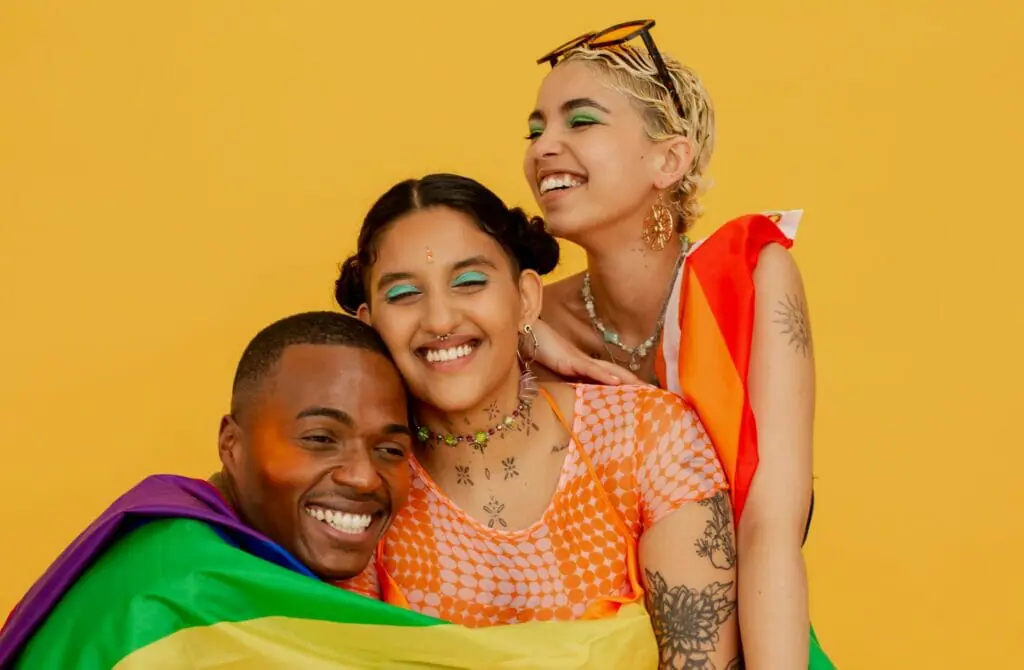
History Of LGBT Rights In India
India has a long and rich history of recognizing and accepting diverse sexual orientations. Ancient Hindu literature and art depict LGBTQ life, showcasing that the concept of diverse gender identities and sexual orientations has been a part of Indian culture since ancient times. However, British colonial rule brought along Victorian-era morality and introduced Section 377 of the Indian Penal Code in 1861, which criminalized homosexual acts.
In recent years, India has seen a progressive shift towards granting rights to its LGBTQ community. The monumental Supreme Court judgment in 2017 recognized the Right to Privacy as a fundamental right, safeguarding an individual’s sexual orientation. This decision laid the foundation for the decriminalization of same-sex relationships in India.
On September 6, 2018, the Supreme Court of India finally decriminalized consensual gay sex by striking down Section 377. This landmark judgment was a significant step towards ensuring LGBTQ rights and social acceptance in the country.
Although legal restrictions against gay sex have been removed, societal challenges still exist for the LGBTQ population in India. For both local LGBTQ people and queer tourists, it is essential to exercise caution, awareness, and vigilance, as situations can change quickly, and there may be individuals who hold conservative or hostile views toward the LGBTQ community.
To protect oneself, it is necessary to stay updated on the current sociopolitical climate, especially when traveling. Ensure that you connect with relevant LGBTQ advocacy groups or seek advice from local community members to understand the best practices and safe spaces while navigating through the country.
Some prominent Indian LGBTQ advocacy organizations include the Humsafar Trust, Naz Foundation, and Karma Sutra. Collaborating with such organizations can help you gain valuable insights into local LGBTQ experiences and provide support during your stay in India.
With continuous advancements in LGBTQ rights in India, there is an air of excitement and hope for a more inclusive society. However, it is always essential to remember that things can change rapidly, and one must stay informed and vigilant to ensure their safety and well-being.
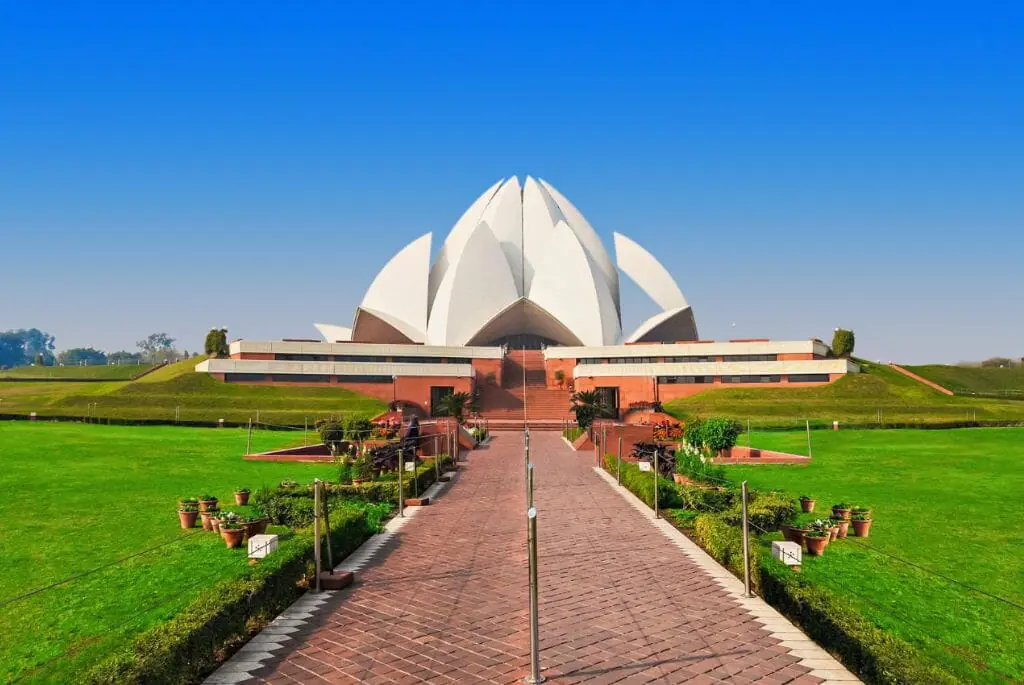
The LGBT Legal Situation In India
India has come a long way in addressing LGBT rights, with a landmark ruling in September 2018, when the Supreme Court decriminalized gay sex by striking down the 1860 law imposed by the British. This was a huge step forward, but it’s essential to remember that the legal situation for LGBT individuals in India is still evolving, and it’s crucial to stay updated as a local or a tourist.
While homosexuality is now legal in India, same-sex unions are yet to be recognized. The nation’s Supreme Court began hearing cases on this issue in April 2023, and the outcomes may significantly influence the legal status of same-sex relationships in India. It’s essential to seek current advice before traveling, as situations can change swiftly, and information may become obsolete.
For both locals and tourists, it’s crucial to remain cautious and vigilant, as not everyone in India may be receptive or supportive of LGBT rights. In many parts of the country, conservative social norms and attitudes may still apply. If necessary, it’s essential to be aware of the steps you can take to protect yourself in various situations.
If you’re looking for support or assistance as a member of the LGBT community in India, there are several advocacy groups available. These organizations can provide resources, current information, and guidance on navigating the legal landscape and the day-to-day challenges of living or visiting India.
In conclusion, while India has made progress in terms of LGBT rights with the decriminalization of homosexuality, it’s important to be aware of the ongoing evolution of the legal situation. Staying updated, cautious, and connected with supportive communities will help ensure a safe and enjoyable experience for both locals and tourists alike. Remember, situations can change fast, and there are always bad actors in every country, so remain vigilant and seek current advice before making travel plans.


The LGBT Social Situation In India
Lesbian, Gay, Bisexual, Transgender, and Queer (LGBTQ) rights in India have come a long way in recent years, with homosexuality being legally permitted. However, social acceptance and legal recognition of same-sex unions are still evolving.
It’s an exciting time for the LGBTQ community in India, as the Supreme Court has been hearing final arguments on recognizing these unions. The positive outcome of these hearings could pave the way for a more inclusive society where the rights of LGBTQ individuals would align with those of heterosexual citizens.
Tourists visiting India should remain vigilant of the prevailing social situation when it comes to LGBTQ rights. While the legal system supports the rights and freedoms of the community, social acceptance is still lagging. As a result, tourists are advised to exercise caution, be respectful of local customs and traditions, and remain alert to changing attitudes and situations.
To stay informed and safe while traveling in India, it’s essential to seek current advice from reliable sources. This may include consulting with Indian LGBTQ advocacy groups like the Humsafar Trust or Naz Foundation. These organizations work tirelessly to promote awareness about LGBTQ rights and strive to create a more accepting society for all.
Remember that situations can change fast, and information can be out of date. Always consult with knowledgeable locals and advocacy groups before traveling.
India is at a turning point, with growing support and visibility for LGBTQ rights. By staying informed, exercising caution, and supporting local advocacy groups, tourists can contribute to this exciting period of progress and experience the rich and diverse culture that India has to offer.
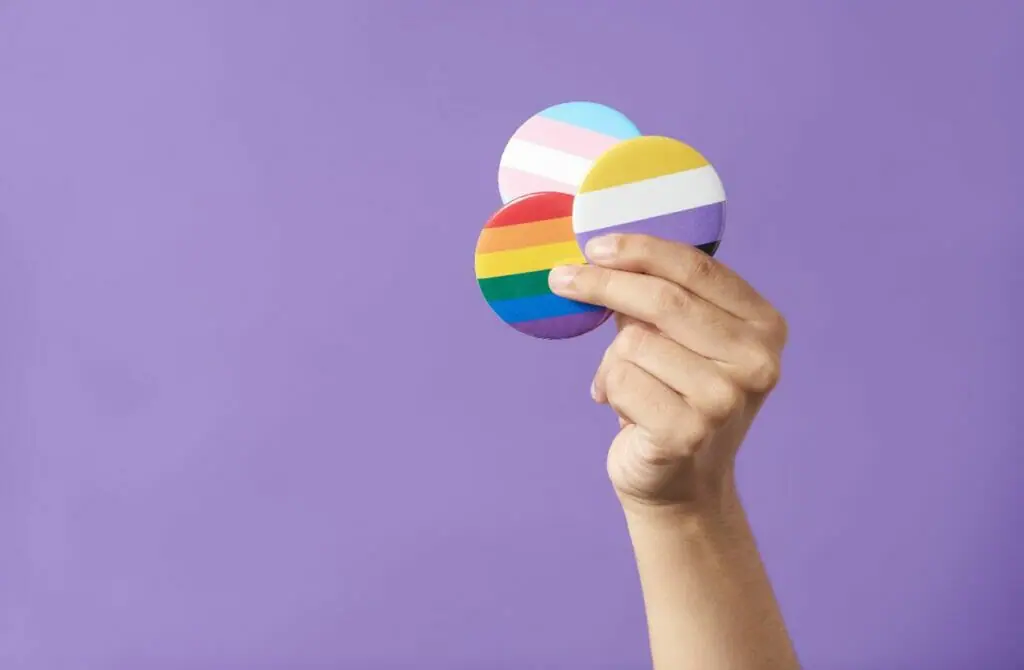
Trans Rights In India
India has made significant strides in recognizing the rights of transgender individuals. The Transgender Persons (Protection of Rights) Act of 2019 marked a major milestone in Indian legislation, as it acknowledges the right to self-perceived gender identity. Transgender citizens also have the constitutional right to register themselves under a third gender. These changes have opened new doors for the local transgender community, offering them better opportunities in education and employment.
However, challenges remain even after the decriminalization of same-sex relations by striking down the colonial-era law, Section 377. Transgender activists continue to fight for equality and the eradication of the colonial mindset that affects the entire LGBT community, including tourists.
As a traveler, taking a few precautionary steps can help ensure your safety in any country. Remain vigilant, be aware of your surroundings, and keep in mind that not everyone may be supportive of LGBT rights. Situations can change, and information might become outdated, so be sure to seek current advice before venturing out. It’s essential to remember that bad actors exist everywhere, and staying informed is the key to staying safe.
You’ll find several LGBT advocacy groups in India working tirelessly to improve the situation and ensure the rights of their community. Connecting with these groups can provide valuable resources to make your experience a positive and safe one.
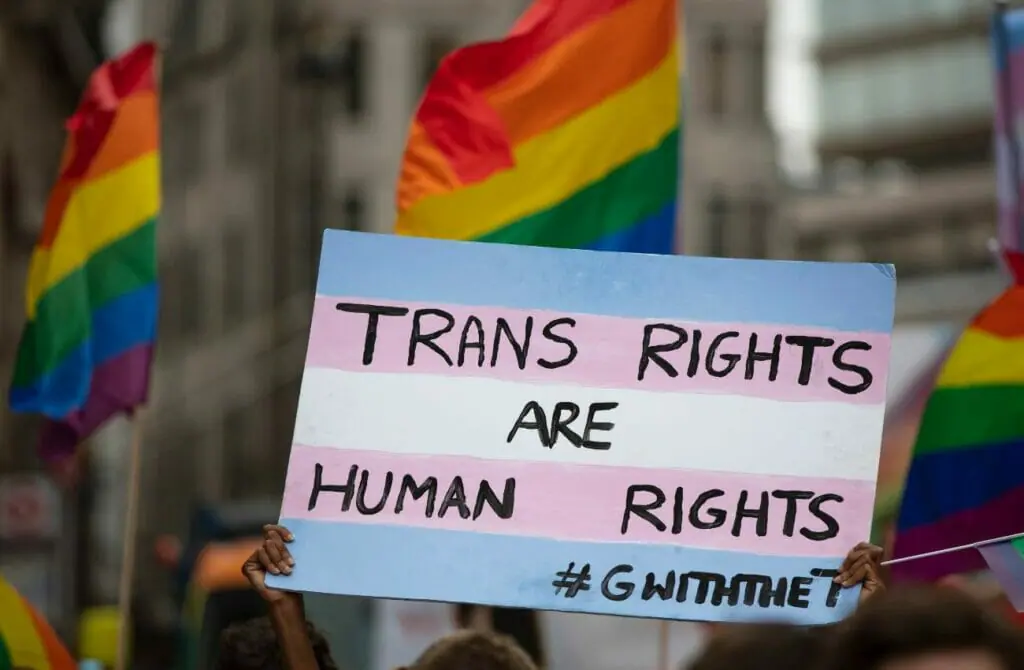

The Future For The Queer Community In India
The future of LGBT rights in India holds great promise following the historic judgment in 2018 that decriminalized gay sex. However, challenges still remain, as the government has yet to legalize same-sex marriage. As authorities are urged to develop comprehensive plans for sweeping reforms and respect toward LGBT rights, we may soon see even more progress on this front.
India’s vibrant and growing LGBT community is entering a new era, with increased awareness and acceptance paving the way for a more inclusive society. Local people are slowly experiencing improvements in their daily lives, while the tourism sector is gradually adapting to cater to the diverse needs of LGBT travelers. Nevertheless, it is crucial to remain cautious and vigilant, as situations can change rapidly, and bad actors can be present in any country.
To ensure your safety and stay informed about the current scenario, it is essential to seek up-to-date advice before traveling. Engaging with the local LGBT community and joining advocacy groups can provide valuable support and insights. Some notable organizations working for LGBT rights in India include The Humsafar Trust, Naz Foundation, and Srishti Madurai.
With the gradual promotion of LGBT rights, India is destined to become a more inclusive and accepting destination for all. While we take pride in this progress, let’s also remember to remain alert and adaptable to the changing landscape of LGBT rights in the country.
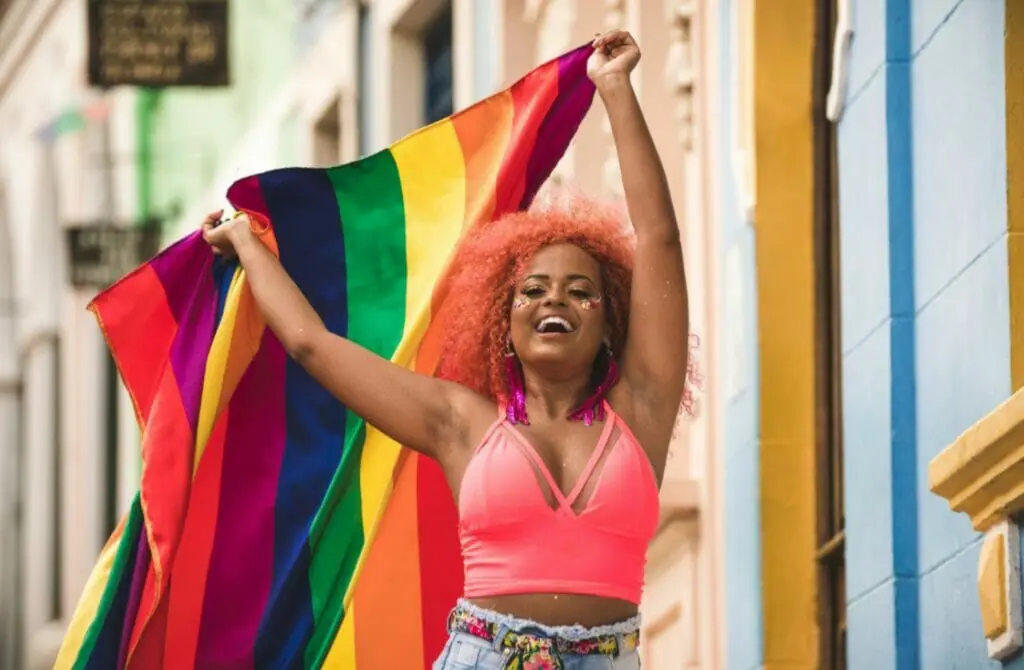
Protect Yourself While Travelling In Gay Ind
When exploring India as a tourist or a local, it is essential to be informed about the country’s current LGBT rights stance and how they can affect you. India has come a long way in recent years; the Supreme Court decriminalized gay sex in 2018, which marked a significant milestone. However, LGBT individuals may still face social and legal challenges, so it is crucial to exercise caution and remain vigilant in all situations.
Take Precautionary Measures – It is always better to err on the side of caution when engaging with locals or other tourists. As attitudes towards the LGBT community may vary across the country, be prudent about revealing your sexual orientation or gender identity until you are sure of a person’s outlook. Also, keep in mind that bad actors can be found everywhere, so be careful in managing close connections or sharing personal details at first.
Stay Informed – Make a habit of keeping yourself updated on any recent developments in India’s laws or social atmosphere concerning LGBT rights. Remember that situations can change rapidly, and information might become outdated, so ensure you obtain the most current advice before traveling or engaging in public events.
Local LGBT Advocacy Groups – Reaching out to local LGBT advocacy groups can be helpful to gather firsthand information and support. They can offer valuable insights into the current environment and suggest places and events where you can feel safe and comfortable. Engaging with these groups can also help foster a sense of community and create lasting friendships.
In conclusion, staying informed, cautious, and connected with advocacy groups can make your experience in India enjoyable and safe. Embrace the country’s rich culture and beauty while always keeping your safety and well-being a priority!
